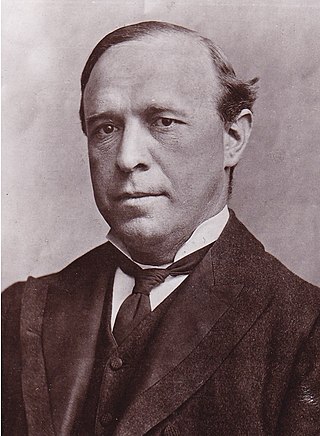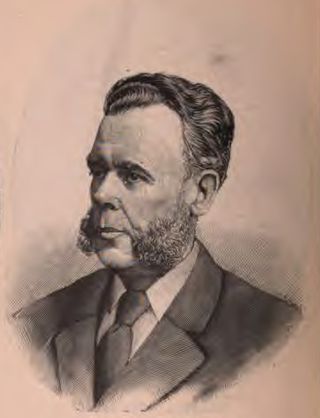
The Liberal Party was one of the two major political parties in the United Kingdom, along with the Conservative Party, in the 19th and early 20th centuries. Beginning as an alliance of Whigs, free trade–supporting Peelites, and reformist Radicals in the 1850s, by the end of the 19th century, it had formed four governments under William Gladstone. Despite being divided over the issue of Irish Home Rule, the party returned to government in 1905 and won a landslide victory in the 1906 general election. Under prime ministers Henry Campbell-Bannerman (1905–1908) and H. H. Asquith (1908–1916), the Liberal Party passed reforms that created a basic welfare state. Although Asquith was the party leader, its dominant figure was David Lloyd George.

In the history of the United Kingdom and the British Empire, the Victorian era was the reign of Queen Victoria, from 20 June 1837 until her death on 22 January 1901. Slightly different definitions are sometimes used. The era followed the Georgian era and preceded the Edwardian era, and its later half overlaps with the first part of the Belle Époque era of continental Europe.

Nonconformists were Protestant Christians who did not "conform" to the governance and usages of the state church in England, and in Wales until 1914, the Church of England.
The Test Acts were a series of penal laws originating in Restoration England, passed by the Parliament of England, that served as a religious test for public office and imposed various civil disabilities on Catholics and nonconformist Protestants.
Disestablishmentarianism is a movement to end the Church of England's status as an official church of the United Kingdom.

Henry Richard was a Congregational minister and Welsh Member of Parliament between 1868–1888. Richard was an advocate of peace and international arbitration, as secretary of the Peace Society for forty years (1848–1884). His other interests included anti-slavery work.

The Welsh Church Act 1914 is an Act of Parliament under which the Church of England was separated and disestablished in Wales and Monmouthshire, leading to the creation of the Church in Wales. The Act had long been demanded by the Nonconformist community in Wales, which composed the majority of the population and which resented paying taxes to the Church of England. It was sponsored by the Liberal Party and opposed by the Conservative Party.

Edward Miall was an English journalist, apostle of disestablishment, founder of the Liberation Society, and Liberal Party politician.

The Elementary Education Act 1870, commonly known as Forster's Education Act, set the framework for schooling of all children between the ages of 5 and 12 in England and Wales. It established local education authorities with defined powers, authorized public money to improve existing schools, and tried to frame conditions attached to this aid so as to earn the goodwill of managers. It has long been seen as a milestone in educational development, but recent commentators have stressed that it brought neither free nor compulsory education, and its importance has thus tended to be diminished rather than increased.
The National Education League was a political movement in England and Wales which promoted elementary education for all children, free from religious control. It was founded in 1869 and dissolved in 1877. It developed from the Birmingham Education League, co-founded in 1867 by George Dixon, a Birmingham Member of Parliament (MP) and past mayor, Joseph Chamberlain, a nonconformist and future mayor of Birmingham, and Jesse Collings, but was expanded to include branches from all over England and Wales. Dixon was chairman of the League's council, Chamberlain chairman of the executive committee, and Collings the honorary secretary. Other leading founding members were R. W. Dale, A. Follett Osler, J. H. Chamberlain, George Dawson, and William Harris. Twenty founding members subscribed £14,000. The first general meeting was in October 1869, by which time William Dronfield of Sheffield was acting as Secretary. It resolved that a bill should be prepared to present to Parliament at the next session.

William Llewelyn Williams known as Llewelyn Williams, was a Welsh journalist, lawyer and radical Liberal Party politician.

Henry Joseph Wilson was a British farmer, industrialist and Liberal Party politician.

The Education Act 1902, also known as the Balfour Act, was a highly controversial Act of Parliament that set the pattern of elementary education in England and Wales for four decades. It was brought to Parliament by a Conservative government and was supported by the Church of England, opposed by many Nonconformists and the Liberal Party. The Act provided funds for denominational religious instruction in voluntary elementary schools, most of which were owned by the Church of England and the Roman Catholics. It reduced the divide between voluntary schools, which were largely administered by the Church of England, and schools provided and run by elected school boards, and reflected the influence of the Efficiency Movement in Britain. It was extended in 1903 to cover London.
Sir Culling Eardley Eardley, 3rd Baronet was a British Christian campaigner for religious freedom and for the Protestant cause, one of the founders of the Evangelical Alliance.
The 1892 Rossendale by-election was a parliamentary by-election held for the British House of Commons constituency of Rossendale in Lancashire on 23 January 1892. It was one of the most important political contests in the struggle over Irish Home Rule and a pointer to the outcome of the 1892 general election which took place in July.

John Carvell Williams was an English Nonconformist campaigner and a Liberal Party politician.
The 1904 Ashburton by-election was a parliamentary by-election held in England on 7 January 1904 to elect a new Member of Parliament (MP) for the British House of Commons constituency of Ashburton in Devon. It was triggered by the death of the sitting Liberal Party MP Charles Seale-Hayne.
The Nonconformist conscience was the moralistic influence of the Nonconformist churches in British politics in the 19th and early 20th centuries. Nonconformists, who were dissenters from the Church of England, believed in the autonomy of their churches and fought for religious freedom, social justice, and strong moral values in public life.

The Welsh Church (Temporalities) Act 1919 is an act of the Parliament of the United Kingdom. It was made to provide for a grant to be made from the Treasury to enable the Welsh Church Commissioners to carry out their task and to set a date for the implementation of the disestablishment of the Church in Wales from the Church of England mandated by the Welsh Church Act 1914. Operation of this Act had been delayed by the Suspensory Act 1914, initially until 18 September 1915, and subsequently by a series of Orders in Council made under the Suspensory Act. The 1919 Act therefore provided for a final postponement until the Welsh Church Act 1914 would come into operation.
Society and culture of the Victorian era refers to society and culture in the United Kingdom during the Victorian era --that is the 1837-1901 reign of Queen Victoria.











